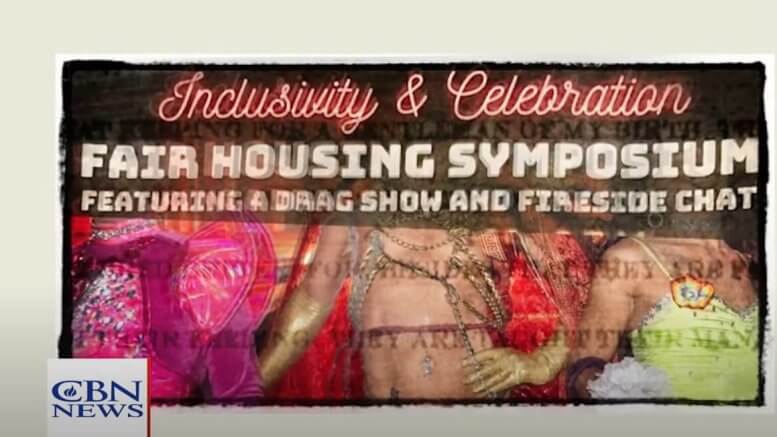In a striking example of overreach, the National Association of Realtors (NAR) has found 70-year-old Virginia realtor and Christian minister Wilson Fauber guilty of violating their Code of Ethics for quoting Bible verses on his personal social media back in 2015. This decision exposes the troubling extent to which national organizations can dictate personal beliefs and speech beyond the professional domain, raising serious concerns about freedom of religion and expression in our US Constitution.
As reported by Ian M. Giatti of The Christian Post in the article “Christian minister, realtor found guilty of ‘hate speech’ for posting Bible verses on social media,” Fauber, a seasoned professional with over four decades in real estate, shared his biblical views on marriage and human sexuality in social media posts dating back to 2015. These posts were not related to his professional dealings but were a part of his ministry and personal life. However, in 2020, NAR implemented a rule prohibiting “harassing speech, hate speech, epithets, or slurs” concerning various protected categories, including sexual orientation and gender identity. Retroactively applying this vague standard to Fauber’s years-old posts, the ethics panel found him guilty.
The sequence of events highlights the arbitrary enforcement of this policy. Fauber’s social media activity became a target during his 2023 campaign for Staunton City Council, with opponents resurfacing his Christian views to lodge complaints. Two fellow realtors—strangers to Fauber—filed formal ethics complaints, alleging violations under NAR’s Standard of Practice 10-5. These allegations, despite being based on personal religious convictions expressed outside his professional life, led to a verdict against him.
In response, Fauber stated, “In 44 years as a realtor, I have loved and served all people. Regularly, I hear from other faith-based realtors that live in fear of being similarly prosecuted for their faith.” His statement underscores the chilling effect of such rulings on the 1.5 million members of NAR who might now hesitate to express their religious beliefs publicly.
Does NAR’s Action Reveal them as Inclusive or Bigoted?
Moreover, the NAR’s recent actions seem ideologically motivated. Just last month, the organization sponsored a drag event in Charlottesville, Virginia, promoting LGBT ideology under the banner of inclusivity. This apparent endorsement of one worldview while silencing others smacks of bias and raises the question: Is NAR enforcing ethics or pushing an agenda?
Victoria Cobb, president of The Family Foundation, aptly called this decision “anti-Christian bigotry in the real estate profession.” She noted that such rulings “chill the religious speech” of millions of professionals who now face a choice between adhering to their faith and maintaining their careers.
Fauber’s attorney, Michael Sylvester, criticized the retroactive application of the rule and the nebulous definition of “hate speech.” He warned that NAR’s approach effectively tells Bible-believing Christian realtors to “be silent,” lest they risk losing their livelihood.
The implications extend beyond real estate. If a national organization like NAR can police personal beliefs expressed outside the workplace, what prevents other professional bodies from adopting similarly restrictive measures? The line between professional ethics and personal freedom must not be blurred to the extent that individuals—particularly those of faith—are forced into silence.
The Bible’s teachings are not hate speech; they are the Word of God.
The attempt to label them otherwise reveals a deeper cultural battle, where biblical truth is increasingly maligned. Christians must stand firm, challenging policies that suppress faith under the guise of ethics. The courage of individuals like Wilson Fauber should inspire believers to speak truth boldly, despite opposition.
This case serves as a clarion call to defend religious liberty. As Fauber poignantly noted, “It is appropriate to not bring up one’s ‘religious’ views while working with clients. It is altogether different when a minister cannot express his/her faith on their personal social media in the privacy of their home.” If this trajectory continues unchecked, the freedom to live out one’s faith—both privately and publicly—may become a relic of the past.
Let us pray for wisdom, courage, and justice for all who face persecution for their beliefs. And may this moment galvanize Christians to defend the truth and protect the freedoms we hold dear.
For more:
- The Christian Post: Christian minister, realtor found guilty of ‘hate speech’ for posting Bible verses on social media By Ian M. Giatti, Christian Post Reporter
- Founding Freedoms Law Center: “Hate Speech” for Posting Bible Verses, Victoria Cobb Dec 19,2024





